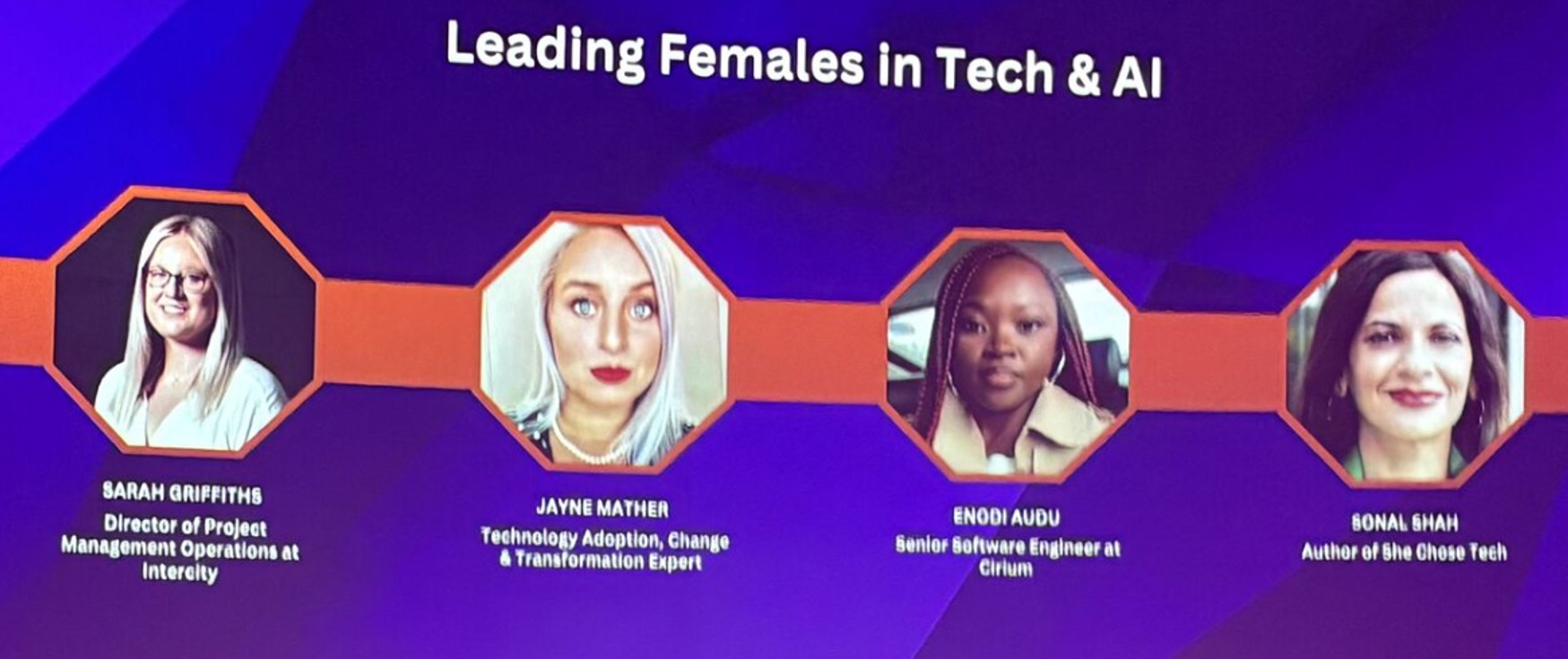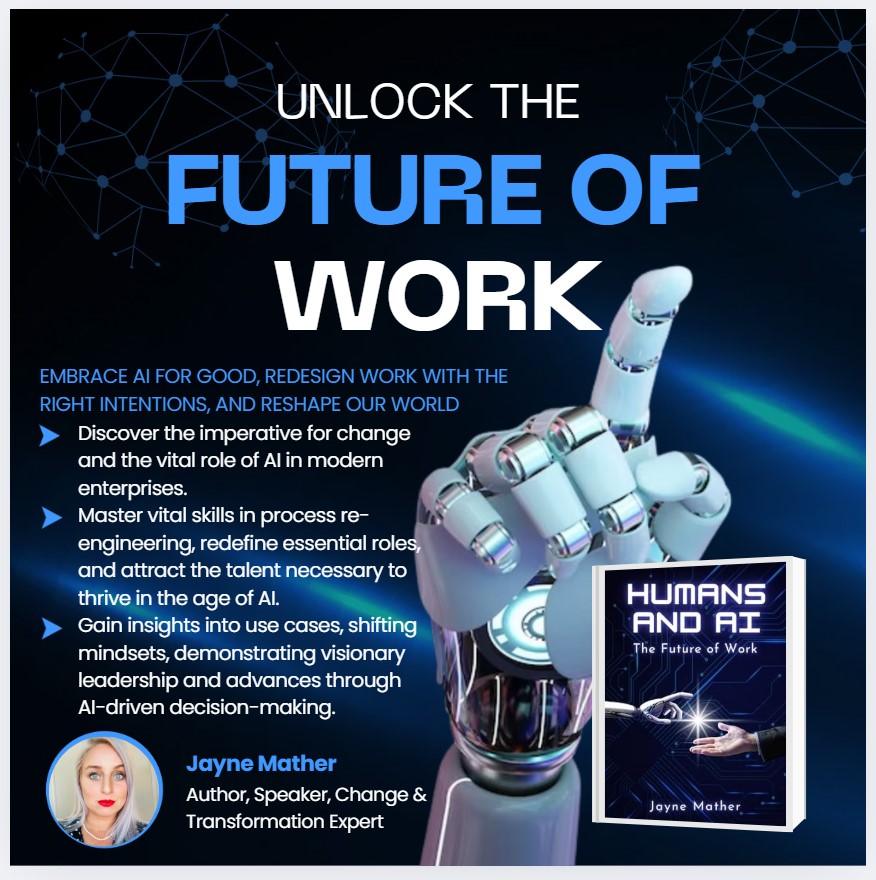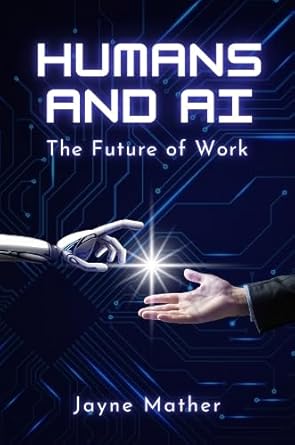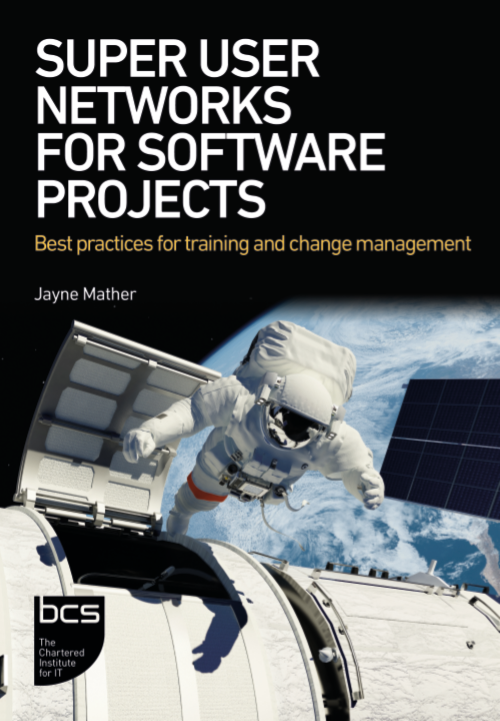The AI Opportunities for Women
Published: Saturday 29th of March 2025

I like to remind people that AI, robotics, and automation technology isn’t new. But what is new, is the hype and impetus to get on the AI bandwagon.
This means that we can use AI to unlock further career opportunities for women. Emerging trends like automation, digital twins, AI-assisted decision-making, agentic AI, machine learning, as well as generative AI capabilities give us more opportunities to be involved and pathways to lead the way.
If you’re wanting to enhance your career in tech, I want to challenge women to lead the way in your own organisation. Suggest the use cases, champion the benefits, write the project plans, build the chatbots, integrate the tech into your products, redesign the processes, apply for the funding, write the marketing pitch, implement the required learning paths, and get involved in the discussions. There are so many different ways to be involved at the forefront of adopting this technology.
AI also gives us productivity tools that can mean more flexibility, and work-life balance than ever before. Combine that with the traditional support women need such as leadership development opportunities, flexible and remote working and overall I am optimist about how AI can benefit women.
AI is going to reshape economies and redefine what ‘work’ even means. And right now, the people making those decisions do not represent society as a whole. A 2020 World Economic Forum report on gender parity found that women account for only 26% of data and AI positions in the global workforce. We can half that again if we just look at positions in machine learning. If we look at Big Tech alone, there’s only 10-15% of women in AI roles at Facebook and Google. Need I remind you we’re 50% of the population? This isn’t just a gap, it’s a structural problem that must be addressed for us to capitalise on the opportunities.
AI is trained on our data, it impacts our lives, and it will determine our future. If we want AI to be ethical, inclusive, and beneficial for all, women must shape its trajectory and have a seat at the table.
We need:
- More women in AI policy and regulation so AI frameworks serve everyone.
- More investment and support for female tech founders and entrepreneurs.
- More women in AI research and data science to ensure AI systems aren’t amplifying historical gender biases.
- More women in decision-making & leadership roles for how AI will be used in organisations.
- More women at the conferences, events, and discussions so we see equal representation and visibility for women in AI.
- To support and celebrate the achievements of women in this field and for those women to advocate for and mentor the women to come next.
- As always, male allies to advocate for women in leadership, amplify our voices, and call out when women are not present in the conversation.
Particularly in the UK we’ve had some hard times, with austerity, Brexit, the pandemic and the cost of living crisis. I believe AI tools can give organisations and economies the productivity boost we desperately need. Estimates range from 300-500 billion within the next decade could be added to the UK economy. But we won’t see those benefits if we lose too many jobs to this technology.
The organisations and economies that thrive in the age of AI will be those that harness technology to amplify human potential rather than replace it. There is a way to implement AI in a way that doesn’t replace people, and in a way that people will trust and get behind, and that’s exactly what my new book ‘Humans and AI’ is a roadmap to achieving. The future doesn’t have to be humans or AI, it’s about humans AND AI. With the right intentions to use AI as a tool to support people, we are at a pivotal moment in influencing what the future of work looks like and how it can benefit the world.
AI will force serious conversations about the concept of work, and redefining productivity. It will challenge us to rethink traditional structures, and workforce policies. Why shouldn’t we use AI dividends to work less, why shouldn’t we all reap the benefits of AI being trained on our data and our work. Policies like the four-day workweeks, and universal basic income (UBI) are both inevitable and essential to preventing job displacement, but if women and marginalised voices aren’t in the room, these policies will inevitably be designed to benefit the same groups that have historically held power. Consider the ‘return to office’ debate over remote and hybrid working, who are most likely to lose out more? Women. AI helps these conversations and supports us all being able to do more, in less time, for more benefit.
But here’s the challenge: widespread AI adoption requires trust, empathy, and human oversight, all qualities that diverse leadership brings to the table. If women are excluded from AI leadership, we risk reinforcing old biases on a massive scale. The AI-driven future is inevitable, but whether it’s fair, ethical, and empowering is still up for debate.
With a collective global intention to use AI for good, we can redesign work and reshape our world.
https://www.amazon.co.uk/Humans-AI-Future-Jayne-Mather/dp/1637427743/



